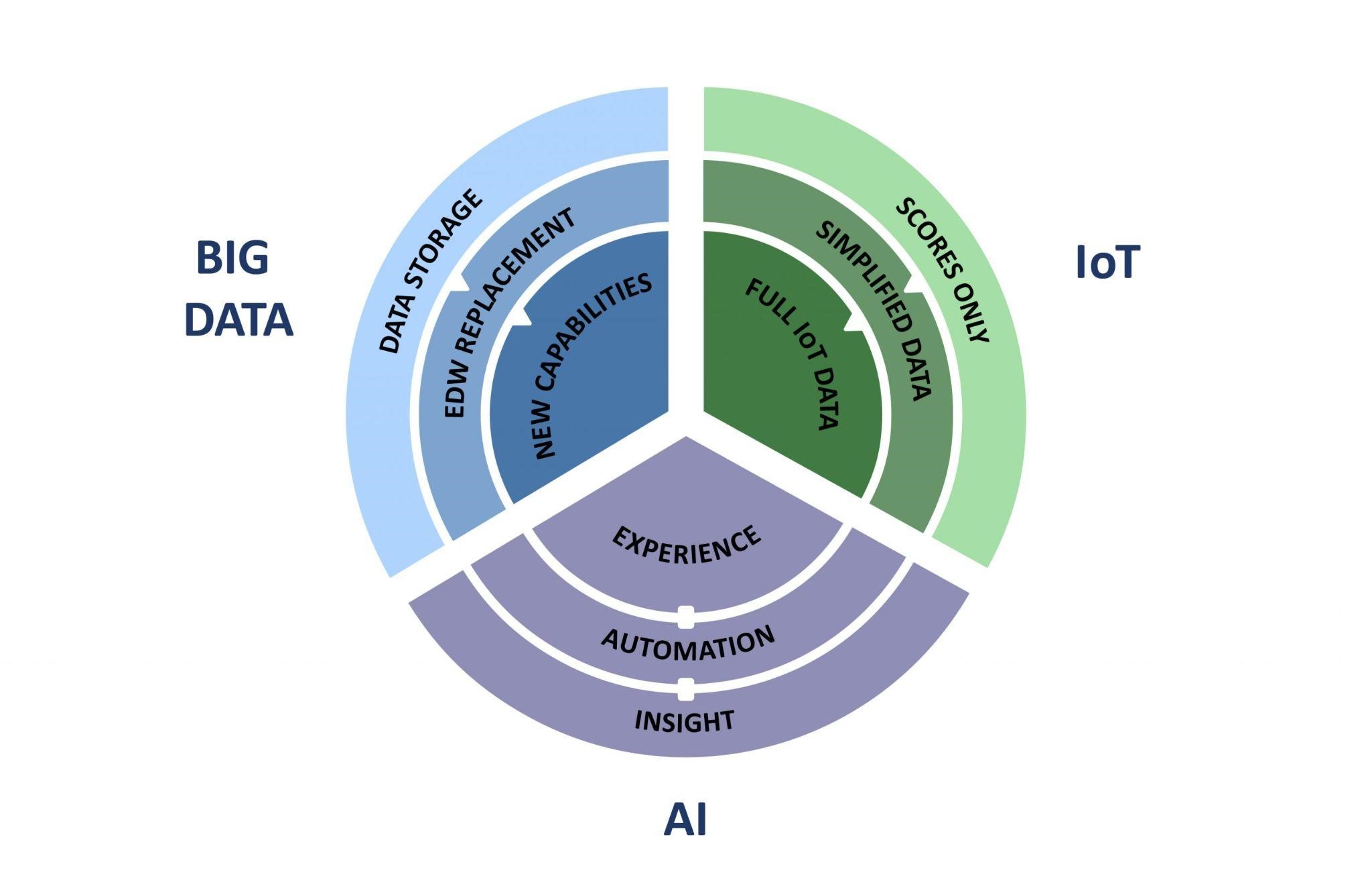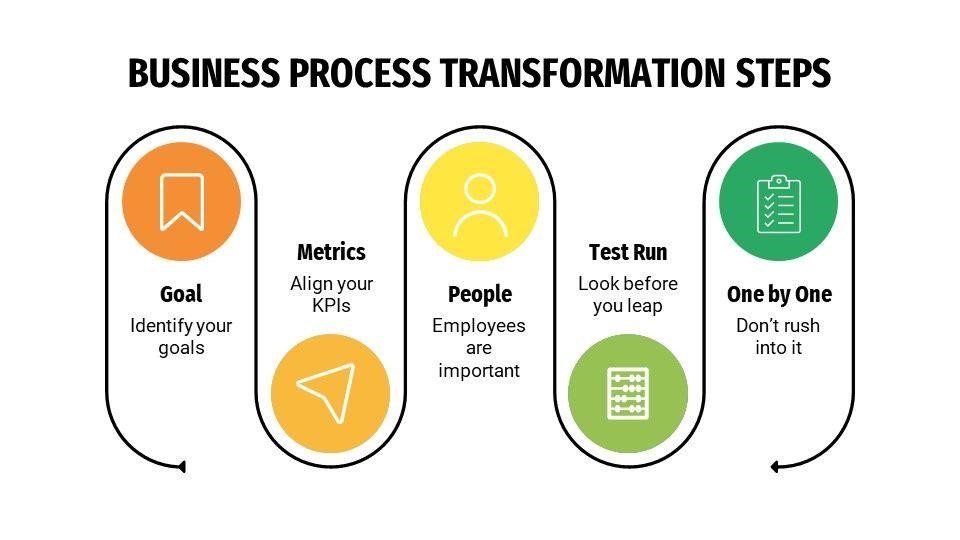
Source: Istock
Data has emerged as the sole driver of the digital transformation of the present world. It has turned into the most significant resource, and without it, one couldn't really expect to succeed in today's crowded market. Organizations should proficiently utilize their data since it very well may be a factor that can differentiate you in corporate development.
This requires the compelling combination of artificial intelligence with data analytics for enhancing business processes.
The automated direction along with data-driven decision-making is rapidly turning into the standard in this digital world. Since the assortment of data and its analysis is more reachable than any time in recent memory, organizations of all shapes and sizes are leveraging this innovation, hence, noticing noteworthy outcomes. Yet, luring those significant experiences out of your data can be challenging when you reach "big data" extents.
AI & Big Data Together Towards Digital Transformation
The integration of big data with artificial intelligence is vital to observe the worth of the data you're gathering. AI is applied to big data in order to wipe out analysis paralysis. It helps you stay away from inaccurate interpretations by giving actionable direction and improved decisions after analyzing large data sets.
While the two ideas are frequently viewed as indistinct trendy expressions, AI and big data use cases have progressively become common because of the adoption of cloud and IoT sensors.

Source: ISM Guide
Organizations are applying AI to their data collection to discover trends, understand customer behavior and evaluate current issues. Almost 97 percent of organizations are leveraging AI and big data.
They are now able to pursue potential clients with the help of automation and achieve higher productivity. Along with this, AI and big data have made it possible to lower existing costs and create new opportunities for revenue generation.
Before getting deeper into the integration of big data and artificial intelligence for digital transformation, let's have a quick look at the basic requirements of digital transformation for an organization.
What Is Digital Transformation?
Digital transformation is basically a process that includes the use of technology that can create, store or process any data. Leveraging digital technology, you can,
- Create new business workflows
- Modify existing processes
- Understand customer experience
These functionalities help you meet modern market requirements. Collectively, the reimagining of a business in this current world can be termed digital transformation.

Source: Image Source
Digital transformation depends ultimately on how you think of your customer and how you can better engage them with your brand and products. It evolves old-school techniques of marketing, customer service, and sales.
As we are moving from papers to online sheets and smart applications to manage our business efficiently, these are the signs that we have an opportunity to reimagine our business processes and restructure them with digital technology on our side.
Requirements For Digital Transformation
Digital transformation is not just a single entity. It can be further divided into subcategories and various elements. Recently, organizations are looking forward to transforming completely using AI and Big Data. For this purpose, you need to dive into four basic transformations.
1.Process Transformation
From artificial intelligence, machine learning, APIs, and analytics to different digital technologies, business managers are focusing more on enhancing the professional workplace by improving business workflows to lower cost, boost quality and reduce operational time.
The following diagram shows simple steps of business process transformation.

Source: Get Break Out
The dominant examples include the food industry, which has evolved to an instance where people can order food from wherever they want using any device.
Different organizations have carried out process automation to improve their administrative tasks alongside accounting and management. Process transformation can make colossal worth in an organization.
2.Transformation Of Business Model
Process transformation focuses more on the limited areas of business. In contrast, the transformation of business models aims to enhance the foundation of how the business delivers value in a particular industry. This can help you leave behind the traditional business models.
The reinvention of business models can be easily understood by the examples of Netflix restructuring the video distribution channel and Apple's music delivery – iTunes.
3.Domain Transformation
This is currently the most significant opportunity for various companies to grow in the market, defeating their competitors. A shift in the domain (more likely towards the technology) in which you have not been doing business is known as domain transformation.

Image Source
It helps you go beyond your boundaries and create non-traditional competitors for better and fast growth.
A prominent example is Amazon. It launched Amazon Web Services and marched into a completely new market domain adopting modern technologies. It is now among the largest cloud infrastructure services defeating tech giants like IBM and Microsoft in this particular field.
4.Cultural Transformation
A shift in organizational mindset, talents, capabilities, and processes in order to compete in the digital world can be termed a cultural transformation.
As suggested in one of the research papers by Dissertation Writing Services UK, "Using AI and big data, companies can evolve their recruitment process along with employee management with flexible workflow and decentralized decision-making."
In order to accomplish digital transformation, organizations need to rely on data analysis and artificial intelligence.
How Big Data Analytics & Artificial Intelligence Are Impacting Digital Transformation
Data is one of the biggest factors in the success of any organization in the present era. Organizations are highly leveraging big data. They generate and collect a huge amount of data every day, every instant. It allows them to utilize this data to get meaningful insights.
An organization can not simply analyze a huge amount of data manually. In order to improve their analysis and make better decisions, they leverage artificial intelligence. It can help organizations generate meaningful insights from the data provided.
Let's see how big data and AI are helping organizations with digital transformation.
1.Digital Marketing
Businesses are deeply relying on digital marketing, which is among the key areas of digital transformation. It helps an organization market the products and services based on the data and insights after analyzing customer behavior and preferences, ensuring maximum engagement.
On the basis of sales and revenue for particular products, organizations are now able to target specific audiences. The integration of big data with digital marketing is helping marketers to enhance their reach to potential customers.
The insights from big data are led through artificial intelligence by automating the process of digital marketing. AI is helping marketers to select suitable platforms, schedule timings, generate content, and reassess the marketing campaign for better and improved results.
2.5G
5G has a great ability to offer massive connectivity across various devices. Backed by distributed architectures, it creates the ability to transfer big data-in-motion and big data-in-rest into some meaningful real-time insights with the help of actionable intelligence.
For a successful digital transformation, it is necessary to have established communication networks that can carry big data and transfer it into useful insights. AI is used here to carry out a smooth process. In case of any glitch, Artificial Intelligence can decide the amount of data to be stored. Furthermore, AI is used in shifting the networks entirely when a particular network is not available.
3.Identifying The Loopholes
If an organization wants to digitally transform, it will need to utilize the correct data with the help of AI. In order to reap maximum benefits and identify the areas lacking in operations, it is imperative to integrate big data into systems.
For instance, data analytics can help in identifying the flaws of global supply and demand chain operations. It can also provide statistics and various insights into different products.
This can help a company overcome the operational errors in the initial stage and improve their products based on customer needs and gathered insights.
4.Improving Cybersecurity

Source: Pexels
With the growth of an organization and digital transformation, they become prone to malware and cyberattacks. However, the areas that need more security can be identified with the help of big data analytics.
Hence, better security steps can be taken after analyzing the data. With the help of AI, security systems are being automated that can decide which particular area needs more security at a particular instant.
5.Customer Engagement
Big data allows you to analyze and create meaningful insights for your customers. With the help of big data and artificial intelligence, you can predict customer behavior. For instance, you have all the data of what a particular group of customers does during a specific season belonging to a certain region.
With the help of AI, you can show them specific products and recommend to them the activities you have analyzed they would love to do.
Furthermore, if you are targeting a similar sort of customer, you can use the previous tactics or can improve by learning from your previous mistakes.
Moreover, this information can help you resolve many of their issues and recommend various solutions with the help of artificial intelligence. This can ultimately result in customer retention and improving their experience with your firm.
While Summing Up…
In simple words, a successful digital transformation requires the intact utilization of big data along with artificial intelligence. Organizations need big data in order to collect different aspects of information from their customers and within the organization.
Further, with the help of AI, this big data can be analyzed to ensure improved customer experience and enhance business operations.
 Author: Stella Lincoln, Assistant Editor at CrowdWriter
Author: Stella Lincoln, Assistant Editor at CrowdWriter
Stella Lincoln is currently working as an Assistant Editor at CrowdWriter, where she helps students with their academic careers and professional pathway. Stella is a technology geek and keeps herself updated with technological advancements. She loves to travel and enjoys visiting new places and exploring nature. For further reading please visit Dissertation Writing Services UK